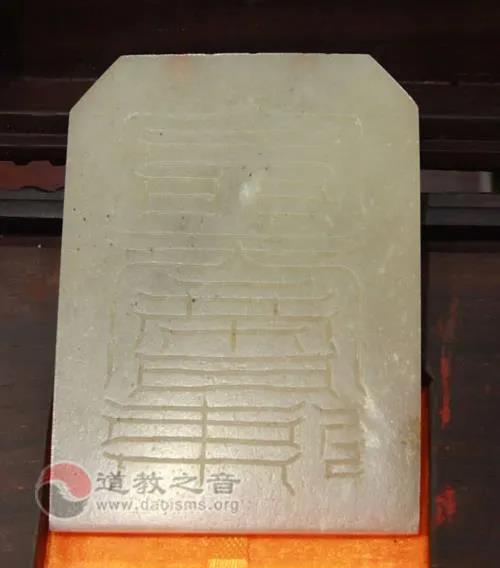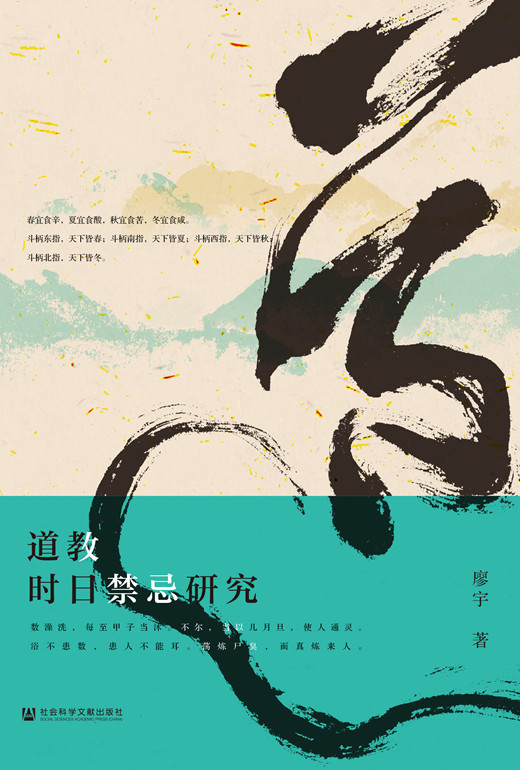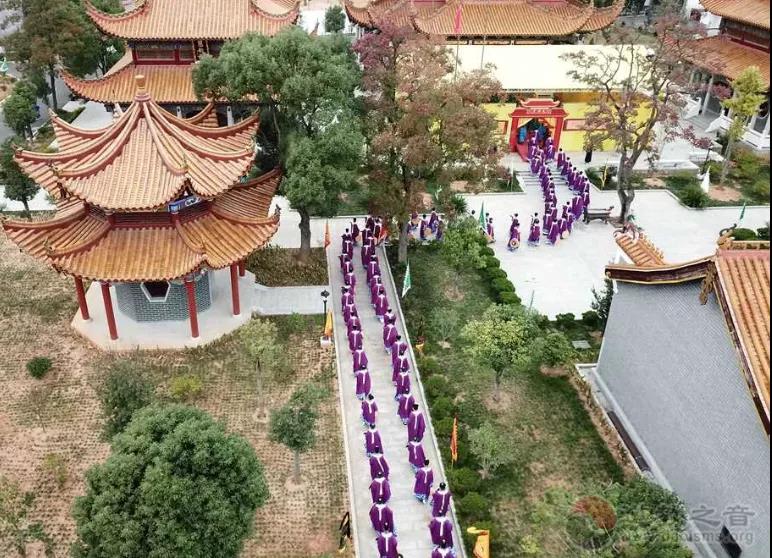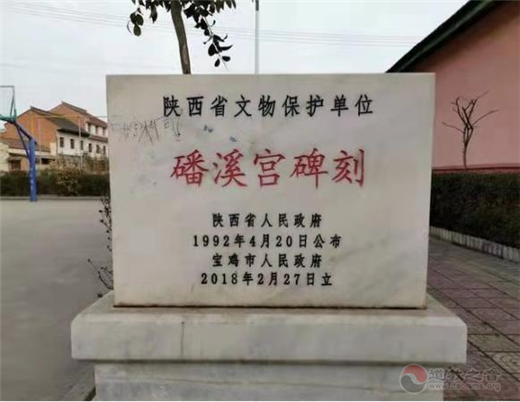If we think of Taoist priests in traditional China as well as in present times some people may feel uncertain about what they actually do who they are, and how to assess them. The question arises how they fit in with society and state, and it is rather peculiar that this question can be asked for any time in history. I am sure that the best approach is a historical approach which allows us to use historical and canonical sources to analyze a standard of such priests which we are free then to apply to present times.
Taoism and the workings of Taoist priests always were embedded in state and society as it was a major objective of the Taoists to fit in with the frame of the state –we may remember the history of the compilation of the Taoist Canon 道藏in the Tang period under Emperor Xuanzong (8th ct.) 唐玄宗.
In modern China, nowadays, the Quanzhen school 全真教enjoys the official support, and therefore I think that it is worthwhile having a short look at the founder of the school Wang Chongyang 王重陽(1112-1170, Jin-dynasty 金代) and ask what he stood for.
We have an inscription on his life and workings by the grandson of Emperor Jin Shizong 金世宗, Wanyüan Dao (1172-1232) 完源瓙who makes the following observation saying:
In a time when the country flourishes, due to an adequate rule of the dynasty, most perfected persons appear. This is a time when Tao is present and noble persons賢attain wisdom. Wanyüan Dao refers to the Three Teachings that all have most true sayings, and in the case of Taoism it is the teachings of Laozi that matter most, especially his teachings of the Tao called wu-wei 無為真常之道, and Wang Chongyang was a man, he says, who absolutely embodied this Tao of Laozi.
Living in Shensi 陝西he was the son of a landlord and reportedly a well-to-do person. However, during the politically turmoil at the time he grandly supported plain folks in his surroundings and donated from his properties whatever was needed.
This of course is a hagiographic feature to show that he fulfilled the virtues of compassion and help for the creatures. However, his learning is all about completing the own perfection to be an immortal person獨全其真者神仙也.
Wang Chongyang unsuccessfully strived for a career as official, trying to receive the Jinshi degree 進士and being good at military planning 武略he also sat at military examinations but failed and found out that he had a strong Tao-energy 道氣. He decided to embark on a Taoist career rudao 入道and adopted the Taoist name: Double-Yang Chongyang 重陽.
We learn that he worked greatly for the well-being of his contemporaries but on the other side decided to enter a new life. We especially notice that he abandoned his family 出家and started to live in hiding, adopting a weird, drunken life-style. This was the precondition to experience an encounter with two immortals, who traditionally are Zhongli Quan鍾離權and LüDongbin呂洞賓and from them he received secret instructions 祕訣.
We notice here that receiving secret instruction is the crucial experience that a Taoist aspires to gain in order to advance his career. Of course, such secret instructions are often orally transmitted. We notice: there is a secret Taoist culture that is orally transmitted – the scriptures and books are only the second part of Taoist culture.
We can say: the attainment of secret instructions is a standard requirement for the Taoist priest which implies the paramount importance of the master-disciple relationship師派 –which again is a standard feature.
We speak of course about an individual, very personal relationship, not about education in public institutions. In the case of Wang Chongyang, his reputed teacher-masters were, as already stated, Zhongli Quan鍾離權and LüDongbin呂洞賓. We notice that the link back to Taoist history always has a paramount importance. There are no new schools that emerge out of the void. In short, nobody can become a Taoist priest out of the own making.
The first generation of Quanzhen Taoists, the seven patriarchs Qizhen 七真, were capable literati and performed as erudite poets who joined Wang Chongyang after leaving the old way of life behind and deserting the family. They all adopted new Taoist names.
The message of Wang Chongyang is expressed in his name Chongyang Double Yang –he fostered in his life and teaching the dual cultivation of Life and Existence xingming性命following established notions of internal self-cultivation, called the Inner Elixir neidan 內丹, and this type of inner cultivation was achieved in an utterly ascetic life, beyond any social bonds of family and beyond any social or public obligations.
This inner self-cultivation which was the standard and inner aspiration that Wang Chongyang and his followers targeted. It was the individual aspiration to achieve immortality in a spiritual way –we remind of the book Chongyang lijiao shiwu lun 重陽立教十五論 –which we do not further discuss but draw the attention to paragraph nr.15, 論立凡世which explains that striving for a bodily immortality is a folly.
Generally speaking, the standard that the Quanzhen Taoist aspired to referred to the inner, individual life of the respective person who was a celibate Taoist priest chujia daoshi 出家道士, which later was the basis for the development of a monastic Quanzhen Daoism. This development, however, was far beyond what Wang Chongyang originally had desired, and again we may refer to the Fifteen Discourses, see nr.5/6: 論蓋造/論合道伴. We remind of the 43rd Heavenly Master Zhang Yüchu 張宇初who admonished the Quanzhen Taoists not to use the appearance and flag of monastic Chan-Buddhism 禪宗.
Wanyüan Dao informs us about the individual precondition that let Wang Chongyang develop his Taoist energies daoqi 道氣. Especially, we get the information that his immortal mother 仙母had an extraordinary pregnancy and gave birth to him after 24 months and 18 days. During that period of time she suppressed amongst “the 24 breaths all superfluous Earth-breaths” 按二十四氣餘土氣to complete a perfected man 成真人.
As a result Wang Chongyang was a good-looking man, with a beautiful beard and big eyes. Today we would say that he had Tao-bones 道骨 –a suitable natural, physical quality as well as the spiritual basis for becoming a Taoist. We also may remember Wang Chuyi王處一, one of the Seven Perfected. His mother dreamt that a cinnabar dawn 丹霞wrapped up her body and then she gave birth to Wang Chuyi –and we learn that at the age of seven he died without having been ill but came back to life again. He knew everything about life and death.
The biographies of other Taoists often present the notion that this or that person was predestined from birth on to become a Taoist. He or she had to be physically and intellectually appealing and acceptable to society – they all were well bred and respectable persons who had a good education and a strong determination of will. No doubt, the Seven Perfected fulfilled such requirements.
We may see this as a standard requirement concerning the life style any Taoist would have to live up to.
Quanzhen Taoists tended to be together in small groups, two or three persons only, for the sake of practical aspects of life. They provoked the administrative attention. I remind of the Ming-period when the official code Da Ming liudian大明六典recorded that the government demanded to close down these many small cells of Quanzhen communities in the hilly countryside as they would only exploit common folks. The Da Ming liudian demand that these people move to the big temples in the main cities where the state registered them and had them in control.
We observe that a culture of Quanzhen Belvederes developed, for example first in Shandong 山東province which certainly was no longer in accord with the original intention of Wang Chongyang. In the beginning the so-called Sanjiao hui 三教會were not huge monastic institutions.
We can generally say that a personal cultivation, the ability to learn, study and memorize, to have wide literary and practical knowledge are basic, very general standards that always apply and the Taoist certainly is no exception.
Now speaking about Taoism we started out with Quanzhen Taoism that emerged in the 12th century. We notice that some of the early Quanzhen patriarchs like Wang Chuyi and Qiu Changchun 丘長春eventually staged Taoist rituals 江南娱乐在线登录账号 儀式of the jiao-type醮that are essential features of Heavenly Masters Taoism Tianshi dao/Zhengyi dao 天師道/正一道.
It is amazing but our sources never tell us how and where or through whom the celibate Quanzhen masters were initiated to be priests of Heavenly Masters Taoism. We know the difference: Quanzhen is a meditative Taoism, and Heavenly Masters Taoism is a liturgical, ritual Taoism.
We do not discuss the question how these two forms of Taoism merged in the course of history in the Yuan- and Ming eras元代/明代which is a tricky question, especially if we consider what the liturgical expertise of Heavenly Masters Taoism was all about. We can question whether the ritual culture really fits in with ideals of Quanzhen Taoism which, again, has its very focus on self-cultivation and not on ritual. We will try to sort it out at some other occasion.
Anyway, if we speak about the personal education and the standing as a person, we can say that the requirements are the same for the priest of Heavenly Masters Taoism and the Quanzhen Taoist. Someone who cannot read and write and shows a mean personal standard is not suitable to be initiated入道/受籙. Now, this brings us to discuss the important theme of affiliation 師派and the relationship: the teacher-master-disciple.
A Taoist teacher-master, whatever branch he may belong to, has to find suitable disciples to pass on his profession and not to let the tradition break off.
Po Yu-chan白玉蟾, a well known Taoist of the early 13th century wrote the tract Nine Essential Introductions to Tao and Method 道 法 九 要 序that presents the paragraph: Searching for a Teacher Master 求 師(abbreviated):
A gentleman who studies Tao needs to get the chance to meet a capable person. Then it is that he can achieve enlightenment and understand Tao 悟 道. When he has the chance to encounter a true teacher master, he can turn to him for the transmission of Tao 傳道and receive the methods 受法.
It is necessary that on the day before the first meeting he estimates whether this teacher master is really dedicated to the mysterious principles, and whether his sources and transmissions are pure and complete.
After that first step one approaches him personally. For the days and months to come, one fosters veneration and puts trust in the teacher master.
Secondly, one properly uses a correct attitude, presents incense, makes a contract with heaven and swears to earth. One receives the transmission of Taoist books, of hidden instructions, of secret methods and heavenly texts. Treat respectfully what was received, cultivate and uphold it.
Since one has attained a transmission, one cannot discard it just as one pleases. Always attend to the school of the teacher master, follow him and be always around. Ask to receive oral instructions 口 訣and heavenly secrets. Generally, do not have any doubts. Spontaneously practice and there will be magic rewards.
Po Yu-chan says that in high antiquity the ancestral teacher masters and disciples were great numbers of people. The teacher-masters investigated thoroughly whether the mind (14a) of the disciples harboured a [proper] spiritual attitude:
In the case that this was not so, the teacher master did not give away the transmission傳道.
In the case that the person was not totally sincere, the teacher master did not give away the transmission.
If the respective person did not have the required bodily marks of status 骨 相, the teacher master did not give away the transmission.
There were those who acted contrary to the five social relations, the teacher master did not give away the transmission.
And also, there were those who were ill, the teacher master did not give away the transmission.
As to official functionaries, prison wards and persons who were first diligent and finally became lazy, the teacher master also would not give away the items of transmission.
Amongst all disciples there were those who appeared to unite with the mind of the teacher master, their breath and flair mutually inclined, and suiting the situation they responded. Those who attained initiation受籙should have a humble mind vis-à-vis the teacher master.
Attempting to find disciples one definitely must not selfishly evolve an angry mind. If one develops anger and hate, one builds up guilt. The fault of a teacher master makes Yin surpass Yang and retribution in return will absolutely follow. The divinities, spirit generals and officials will not provide any help in the rituals.
The teacher master of Tao and method 道法keeps all the time his mind and will together like one entity一體, and also the disciple upholds all the time the one entity of mind and will. The approach to Tao comes spontaneously and without anything demoniac involved.
There is the saying: a disciple searches for a teacher master – this is easy. A teacher master searches for a disciple – this is difficult!
In short, it is all about the own, personal standing and Po Yu-chan also has a message in this matter. In his essay Establishing the Own Personality 立 身he tells us that:
The gentleman who studies Tao should first establish the own personality and be very conscious as to attaining the Tao of the humans人道.
He unrolls and peruses the scriptures and manuals, and widely works his way through the mysterious texts.
He equally discards a mind that is set on harming people and injuring creatures.
He decidedly takes on the task to consider how to do good things for the living and how to help people.
In an unceasing manner he strives for the good and in all his doings strives for perfection.
In a fine and serene way he exerts religious veneration, shows harmoniously filial piety 孝順for the parents, venerates and honours the worthy and the elder people.
In all his doings he is upright and strong, and his deportment is orderly and reverential.
He must not let evil, lewd and absurd thoughts arise. He must not roam through brothels and must not get close to places of execution and spots where corpses and litter are around.
He keeps body and mind pure and tranquil, keeps himself far aloft from bad guys, but sets out to search for a teacher master as to inquire about Tao. This is a gentleman of beginning perfection 初真. One should base oneself on this reasoning and set it to practice.
We realize that this standard of refinement and personal culture is seen as precondition being a Taoist priest.
Now, we look at a specific activity of the priest, for example the writing of amulets, we see how all of this comes to bear. I wish to emphasize that amulets are the essential ritual tools in any ritual, especially in Taoist exorcism 法術 –which is part of Heavenly Masters Taoism.
An anonymous text in A Corpus of Taoist Rituals 道法會元tells us what the term Amulet 符means: 1) union 合and 2): a pledge 信.
“I take my own spirit force to unite it with the spirit force of the others. I take my own breaths to unite them with the breaths of the others. The spirit force and the breath do not have an outer form but they take shape in the form of the amulet.”
There is an instruction that says:
First one is absolutely pure and tranquil, interrupts any consideration and freezes one´s spirit force to let the mind clearly recognize: the world lies within the own inner doors.
Thus, when the spirit forces return and the breaths are revived, the Original Spirit Force 元 神appears in front of oneself. Then one can take up the writing brush, and with the eyes being fixed on the tip of the brush one thinks of the radiance of the own body that comes forth from the centre of the eyes. The radiance unites in the centre between the eyebrows to form a black pearl. Then it becomes a golden ray and the radiance flows into the finest tip of the brush. Then it is that one relies on the rules to write out the seal character. One visualizes that seal character as a golden serpent that on the paper moves rapidly away. It is absolutely essential that the writing brush turns following the eyes.
If one summons spirit generals and writes amulets then one uses just this method and as a result the one spark of magic radiance 一 點 靈 光shines out the heavens and brings light to earth.
Li Shao-wei 李少微, one of the early patriarchs of Qingwei Taoism 清微道tells us: As to amulets, people all fake it by taking red ink, paper and brush. I alone speak of the one spark of magic radiance 一 點 靈 光that permeates heaven and penetrates earth, and within which the fine divine forces dwell.
We also learn from Li Shao-wei, if people have an illness, it all comes from not being moderate in arranging and harmonizing wishes and desires. If the cure of the illness makes use of an amulet but the amulet is just red ink, how could it be magic out of itself? What makes the amulet magic is my own true breath 我 之 真 氣.
Therefore it is said that an amulet does not have a correct outer form 正 形but it has the breath as its magic force.
The amulet is a tool that combines Yin and Yang. Only those in the world who are of utmost sincerity 誠心can use an amulet. If sincerity is not present, the amulet naturally is not magic.
The text states that writing amulets is not a matter of calligraphy but is based on sincerity, on a filial behavior in family and society –on being a sober, straight person that knows to handle the inner energies and spiritual potential.
It appears that the cultivation of the human body and nature, of the gift of life and existence xingming 性命, are the standard that the Taoist must realize. It is fascinating to see how on this basis the Taoist sets to practical use the inner quality when he transforms into a divinity bianshen變神as first step before writing a Thunder-amulet雷符which in the Song period Wang Wenqing王文卿had explained.
The theory of internal alchemy that the later Quanzhen Taoists used to refine the body, served Wang Wenqing (Song) for quite another purpose. He used neidan內丹practices to transform himself to attain a divine alter-ego for the time of the writing of the respective Thunder amulet:
Wang Wen-qing says: “Congeal the divine force, sitting quietly in meditation. Concentrate the vision on the one most shining point in the Kidney Palace腎宮. Within a short moment fire arises engulfing the whole body all around. Blow out one breath of air and the ashes flow away. Concentrate then the vision on the breaths in the five colours of the five directions. They mix and combine to be one aura of radiant shining in purple and golden colours, and then, this radiant shining transforms itself into an infant 嬰兒.”
Wang Wenqing describes how this infant grows to become a greatly impressive Thunder general with the peak of a phoenix –a bird-man 鳥人 –and in fact the priest himself is that bird-man, the alter ego named Great Divinity of Blazing Fire焰火大神. And it is this divine potential that enables him to write the Thunder amulet of exactly this divinity.
We can say that the inner quality of the priest is the personal unity between the own spiritual and energetic potential and the world of the divine. The Taoist receives at initiation so-called registers lu籙that inform him about his exact divine identity during a ritual.
This implies concentrated meditation and a clear sight to the divinities that are comprehended within the own body and mind.
I think that this is a superb standard that the non-initiated cannot reach. I remind you that today a Taoist who enters the Tao-arena 道場thinks of himself as Zhang tianshi 張天師or possibly he thinks of himself as this of that marshal yuanshuai 元帥 –a divine potential that is activated in ritual.
The 43rd Heavenly Master Zhang Yu-chu told us in his Ten Rules for the Taoist 道門十規that the priest must have a straight sight/view of the divinities and must not be distracted to other worldly items.
Otherwise he would only fake ritual and betray the people. Ritual is not a show and Taoists do not perform theatre –which tells us all about the mandatory standards for the Taoist priest.
We must not forget that Zhang Yu-chu explained to the Ming emperor that Taoists in all periods of history supported society, helped people in distress – and in fact all of this was done through Taoist rituals. The implication is that the influence and might of such rituals is guaranteed if the priests live up to the standards that we just featured.***
(原文来源于孝忠诚信与伦理道德分论坛发言稿)

流泪
0人

鼓掌
0人

愤怒
0人

无语
0人

欢迎投稿:
Email:server#daoisms.com.cn(注:发邮件时请将#改为@)
免责声明:
1、“江南app下载-官方网站 ”所载的文、图、音视频等稿件均出于为公众传播江南娱乐在线登录账号 文化之目的,并不意味着赞同其观点或证实其内容的真实性,我们不对其科学性、严肃性等作任何形式的保证。如其他媒体、网络或个人从本网下载使用须自负版权等法律责任。
2、本网站内凡注明“来源:江南app下载-官方网站 ”的所有文字、图片和音视频稿件均属本网站原创内容,版权均属“江南app下载-官方网站 网站”所有,任何经营性媒体、书刊、杂志、网站或个人未经本站协议授权不得转载、链接、转贴或以其他方式复制发表。已经本网协议授权的媒体、网站,在下载使用时必须注明“来源:江南app下载-官方网站 ”, 违者将依法追究责任。
3、凡本站转载的所有的文章、图片、音频、视频文件等资料的版权归版权所有人所有,本站采用的非本站原创文章及图片等内容均标注来源,由于无法一一和版权者联系,如果所选内容的文章作者认为其作品不宜上网供大家浏览,请及时用电子邮件或电话通知我们,以便迅速采取适当措施。

图注:茅山四宝之玉符 读道经时,很多对天尊的描述,前面都会加上一些对环境、功德、品格等方面的描述语,如高...[详细]

建除术是中国古代的一种选择方术。建除术在秦汉时期颇为流行,《史记日者列传》有建除家,可见西汉时期,建除...[详细]

在《道德经》中有一个非常著名且非常关键的比喻,源于经文的第五章,其曰:天地之间,其犹橐龠乎?虚而不屈,...[详细]

2021年8月25日宝鸡市老子文化研究会会长易渲承邀我参加磻溪宫邱处机版《道德经》经幢的校勘活动。除观看校勘人员...[详细]

历史上的文昌洞经古乐 文昌帝君是文昌星神与四川地方梓潼神结合而产生的。四川省绵阳市梓潼县七曲山是传说中的...[详细]